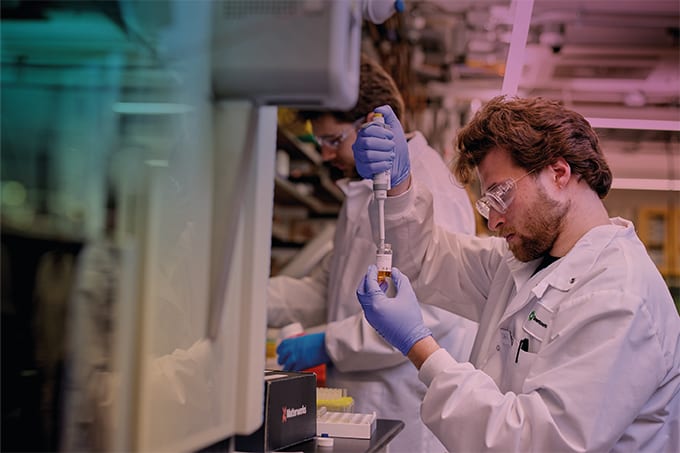We launched the Lipidomics Standards Initiative (LSI) because we saw that the number of studies reporting low-quality lipid data was increasing and felt there was a need to develop guidelines. The aim of the initiative is to create a common standard for minimum acceptable data quality and reporting for lipidomics. We want to centralize lipidomics standards with the goal of guiding and stimulating users, reviewers, editors, and funders toward harmonized lipidomic outputs. The initiative covers the major lipidomic workflows, including sample collection, storage, as well as data deconvolution and reporting. It is a community-wide effort covering methodological progress based on the input of researchers in the field.
Why is finding a “common language” for lipid species reporting important? First of all, it provides a foundation for data comparability and exchange in both basic and clinical research, as well as for development of bioinformatics tools. Together with quality standards, this common language will improve our understanding of the functional role of lipid species. Moreover, common standards will set the cornerstones for the regulatory environment, which is necessary for applying lipidomic methods in diagnostics. Already, we have 20 key opinion leaders as members, and we look forward to seeing our number grow. We are working together with the LIPID MAPS Lipidomics Gateway and both the Metabolomics and Proteomics Standards Initiatives – but we welcome interactions from other disciplines and initiatives. We believe the LSI will help the ultimate goal of discovering the true potential of lipidomics. Kim Ekroos is Founder and CEO of Lipidomics Consulting Ltd, Esbo, Finland. Lipidomics Standards Initiative (LSI): https://lipidomics-standards-initiative.org Coordinators: Gerhard Liebisch - gerhard.liebisch@ukr.de, Kim Ekroos - kim@lipidomicsconsulting.com
Michal Holčapek Despite the rapid growth in recent years, the field of lipidomics is still not “mature,” and we are still missing generic guidelines. Lipidomic quantitation can be used for clinical cohorts, as illustrated by the literature; unfortunately, many papers do not follow basic requirements for analytical quantitation, such as the use of internal standards, method validation, quality control, cross-validation, and so on. The result? A chaotic situation whereby published results cannot be reproduced by other groups. Federico Torta As with all new fields, issues around standardization have manifested themselves as the area has become more established, generated by a demand from the scientific and clinical community to be able to compare different studies confidently and to increase reproducibility. Anne K Bendt Standardization – or at least harmonization – of analytics is crucial to cost efficiency. Multiple international organizations are active in standardization efforts, including the Centers for Disease Control (CDC), offering schemes for standardization of LC-MS-based analysis of cholesterols and triacylglycerides. Various working groups within the European Federation for Laboratory Medicine (EFLM) are leading international harmonization efforts for clinically relevant molecules. Standardization of data curation, interpretation and reporting as well as linking results to electronic medical records (EMR), international biobanks and making use of artificial intelligence for lipidomic datasets are also critical endeavors. Amaury Cazenace Gassiot With so many variations between and within lipidomics workflows (one lab = one method) and specific issues, such as the lack of adequate internal standards, we are faced with a challenge: can we, as a community, deliver consistent and useful data based on agreed guidelines? Matej Orešič Harmonization of reporting lipidomics experiments and developing guidelines for good practices is an important goal, and recent consensus publication (1) was an important step in this direction. In regards to standardization, the question is what is meant by this term. There is already the Metabolomics Standards Initiative (MSI), which also, in principle, includes lipids. Lipidomics data deposition to public databases such as MetaboLights, which is supported by many journals, has to follow MSI. Nevertheless, there is room for improving MSI from the lipids perspective, and the lipidomics community would have the greatest impact if it joined forces with MSI. This would also be the best way to develop practical tools needed to implement standardization in the field.




